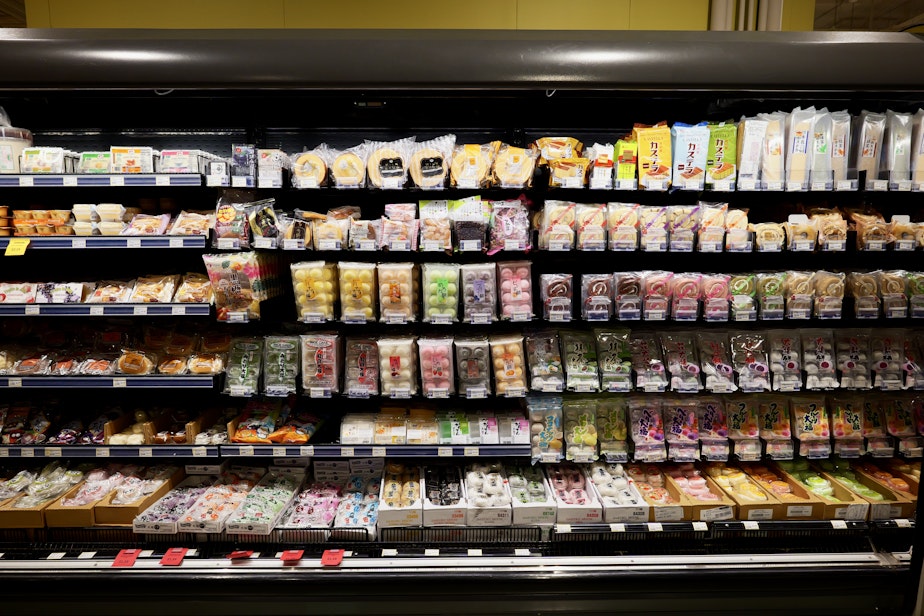Seattle businesses on edge about Trump's trade tariffs

Local businesses are scrambling to figure out how to deal with the Trump administration’s latest trade tariffs.
Denise Moriguchi, CEO of Uwajimaya, estimates that close to 80% of their inventory comes from Asian countries on the tariffs list: Japan, China, Vietnam, Taiwan, and Thailand, to name a few.
Uwajimaya is a local grocery chain where you can find Asian ingredients, whether it’s dried bonito flakes, Korean chili powder, or Vietnamese fish sauce.
RELATED: Washington state spud farmers will be mashed by Trump’s tariffs, Sen. Murray warns
Moriguchi said she has been talking to distributors about keeping prices down as much as possible. Unfortunately, she said, everybody will have to bear the costs, including consumers.
“There’s no way we could absorb it all,” Moriguchi said. “And the hard part is, a lot of our products, we don’t have domestic alternatives.”
Sponsored
She said grocery stores already have thin profit margins. But she said the impact of tariffs will be more than higher food prices.
Sponsored
“[Food is about] bringing people together or it’s introducing new cultures to people. So, there’s this whole other side of food... that I think will also be impacted,” she said.
For now, Moriguchi said their distributors have a few months of inventory. But after that, how much of the tariff will be passed on to consumers and how much will be absorbed by stores are still unknowns.
RELATED: Amid tariff turmoil, where do things stand with Washington state's neighbor to the north?
It’s not just the consumers who will be feeling the pain. More than 40 percent of Washington jobs, from agriculture to aerospace, are tied to international trade.
The last trade tariff from the Trump administration was in 2018, affecting imports from the European Union, Canada, Mexico, and China.
Sponsored
Lori Otto Punke, president of the Washington Council on International Trade, said those tariffs hurt the Washington economy and lost opportunities for businesses in the state. For context, Otto Punke said Washington’s state exports were nearly $90 billion in goods in 2015.
“Nearly a decade of tariff policy, in 2023, a lot of our goods and services were down about a third of that, down to $60 billion,” she said during a press conference with U.S. Sen. Patty Murray (D-Washington). “So, as we know, there are negative impacts of tariffs already.”
RELATED: Between tariffs and survival, American business owners are doing alarming math

At Le Pichet, a French Bistro at Pike Place Market, French cheeses and wine are important mainstays at the restaurant.
Sponsored
Co-owner Michael Chick said many small French producers offer affordable wines, which has helped his business weather the economic ups and downs. In turn, customers are able to enjoy the dining experience without breaking the bank.
Sponsored
“We don’t want this to become a rich person’s game,” Chick said. “We want people like us, artists and industry people, to be able to afford this, to be able to go through this with us, because that’s what makes it enjoyable for us.”
Chick said they’re taking a wait-and-see-approach before making any changes.
“We’re not convinced that we have to immediately blast up the price and hit the consumer with it,” he said.
RELATED: How automakers are responding to the 25% car tariffs so far
Chick said he’s thankful to the sellers and distributors he works with. But he’s worried for them.
Sponsored
“They’re the ones who have to keep bringing in [the goods],” he said. “They have containers that are being halted. Things are just stopped on their tracks.”
The wine shelves behind Le Pichet’s bar appear fully stocked. Chick said they have enough wine to keep them covered through summer. After that depends on what will happen next.




